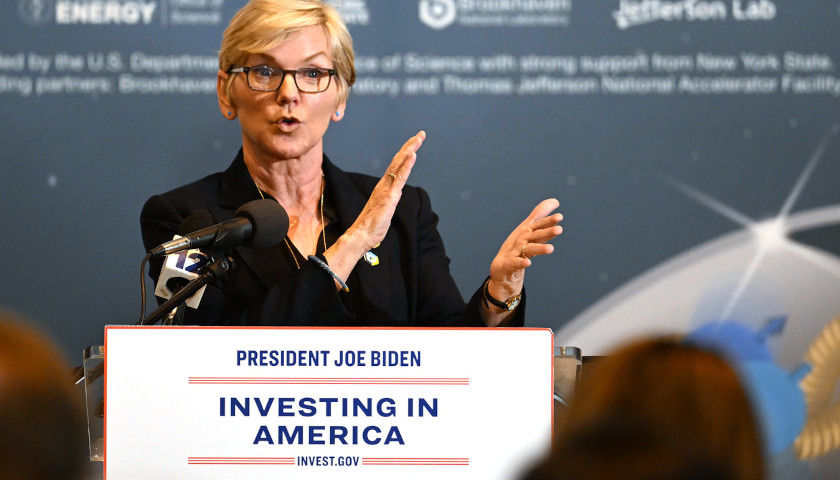Metro Nashville’s newly formed Community Review Board (CRB) held a special meeting on Tuesday about a series of allegations by a disgruntled former Metro Nashville Police Department (MNPD) officer.
The 61-page complaint contained allegations that high-level MNPD officers engaged in lobbying behind closed doors to pass a 2023 state law that banned the city’s Community Oversight Board (COB). The complaint also alleged that MNPD undermined the Office of Professional Accountability (OPA), MNPD’s internal affairs division responsible for investigating police misconduct.
After the state law abolished the COB, Metro Council established the CRB, an initiative pushed by Nashville Mayor Freddie O’Connell, in its place as a response in an attempt to continue the COB’s work. However, the CRB is limited by state law, which the COB was not.
Nashvillians voted to create the COB in 2018. The original board had the power to investigate allegations against MNPD, recommend disciplinary measures, and refer findings of criminal activity to the district attorney, the grand jury, or the U.S. Attorney.
MNPD reportedly saw a decrease in morale because of the COB, which resulted in officers writing fewer traffic tickets following the board’s formation. Early on, communications between police and the COB stalled, so the creation of a memorandum of understanding between the two was delayed.
While active, the COB continually pursued leftist priorities in policing, like demanding that MNPD officers not ask about a person’s citizenship status, recommending the police department be monitored by members of certain minority groups, and recommending hiring personnel on the basis of race and gender.
The COB also prioritized membership candidates who displayed social justice support, like transgender activist Maxine Spencer. The year before, the board rejected Vanderbilt political science and law professor Carol Swain, Ph.D, from membership after being questioned for her politically conservative views.
Former COB Member Ovid Timothy Hughes served on the board illegally due to his status as a convicted felon without restored voting rights, The Tennessee Star reported after Hughes’s departure.
The complaint the CRB discussed on Tuesday was sent to the mayor’s office, the OPA, and the CRB by retired MNPD Lieutenant Garet Davidson on May 22. Fox 17 posted footage of the CRB’s nearly two-hour meeting to X.
WATCH: Nashville's Community Review Board, Metro Police's watchdog agency, holds a special called meeting. https://t.co/h7FHBQPFpk https://t.co/Nsynbqj108
— FoxNashville (@FOXNashville) May 28, 2024
Metro Legal Department Attorney Nicki Eke advised against the board discussing the complaint publicly. The OPA is actively investigating the complaint.
However, CRB Member Alisha Haddock said the board needed to discuss the complaint because the OPA’s investigation was compromised. CRB Member Drew Goddard pointed out that the complaint was not against the OPA but against MNPD.
The board agreed to request Nashville Mayor Freddie O’Connell to initiate an investigation of the allegations by an outside party.
The Star asked MNPD to provide a copy of the complaint document, but MNPD had not responded by press time.
In a video posted to the podcasting platform Podbean, Davidson vaguely described the contents of the complaint and said he began work on the complaint while still employed with MNPD. He called the complaint already sent his “first” complaint and claimed he has collected evidence of his allegations, though he has chosen to withhold it.
“I chose the path of greatest risk, sacrificed my career, and left the department to do things that many wish somebody would step up and do,” Davidson said in the video. He concluded by soliciting financial support for his podcast and promoting his novel.
MNPD provided The Star with a statement about the complaint by Police Chief John Drake:
The police department has been reviewing and will investigate the complaint submitted by Mr. Davidson on May 22. As this occurs, we will look at whether our administrative processes for internal investigation and discipline need any refinement. A periodic review of practices and procedures in a large police department such as ours is healthy for the organization.
Mr. Davidson did not bring any complaint to me, or, I am told, the Director of the Office of Professional Accountability, prior to his resignation becoming effective on January 5, 2024.
I do want to address, briefly, the subject of training duration for basic and lateral police officer trainee classes that Mr. Davidson alludes to in his complaint. The State of Tennessee requires a minimum 488 training hours to be certified as a police officer. New police officers who graduate from MNPD basic training receive 893.5 hours of training, 83% more training hours than required by the state. New lateral officers, those men and women with policing experience who have transitioned their law enforcement careers to Nashville from other agencies, receive a total of 621.5 training hours from us, 27% more than required by the state, on top of what they received from their former agencies. I believe our training process and our instructors are exemplary, and we work to ensure that our training conforms with essential elements that officers need on the streets every day to be personally and collectively successful in serving the Nashville community.
– – –
Matthew Giffin is a reporter at The Tennessee Star and The Star News Network. Follow Matthew on X/Twitter.
Photo “Nashville CRB Meeting” by FoxNashville.








